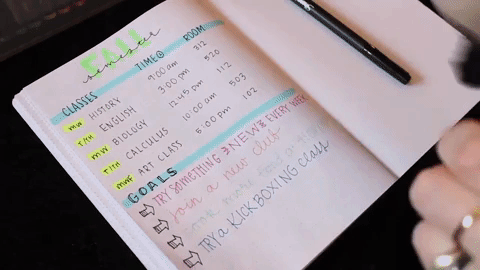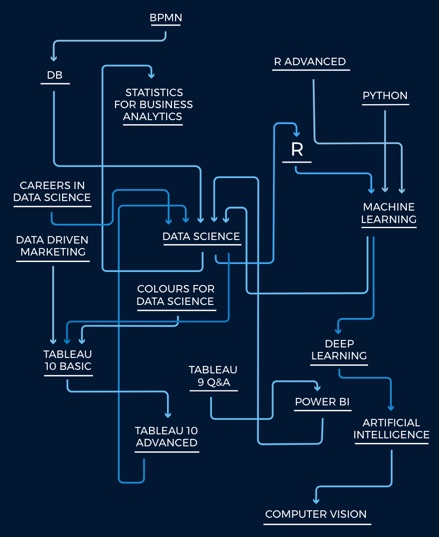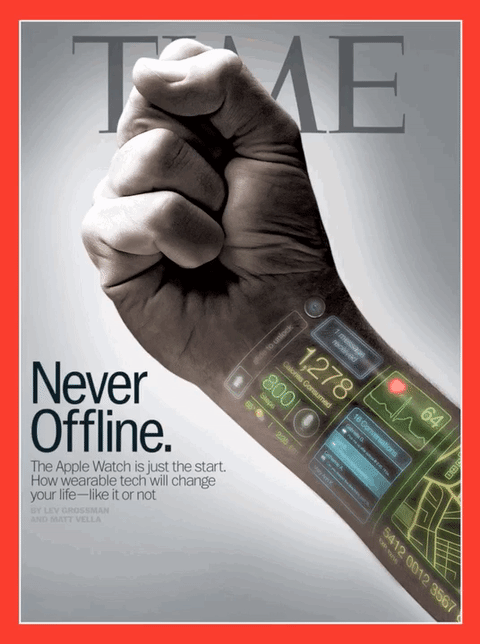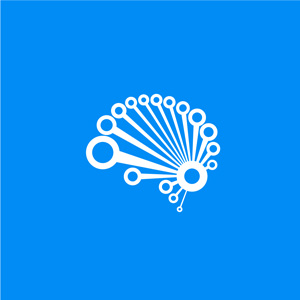2018 is here, and with it: new years resolutions!
Also: failed new years resolutions
Here’s the thing – in this time of year, most people want to try something new. Learn something different and exciting. Challenge themselves. The problem is that most people who make new year’s resolutions fail. They lose interest after a while.
And “Becoming a Data Scientist this year” is not the exception to this rule.
Thankfully, we’ll help you become a Data Scientist

The Issue
In such a broad topic such as Data Science, people tend to start with a lot of motivation, start in whichever course, go in different directions and ultimately, arrive nowhere and back to square one.
This is why we’ve created our New Year’s Resolution Guide!
How it Works
We’ll provide you with the information, knowledge and motivation you need to become a data scientist. It’s not impossible, actually: it’s quite simple.
- First: We included the basics, the “What you need to know” to get started.
- Second: We’ll describe the different Data Science roles which you can choose.
- Finally: A roadmap of how you can take your Data Science career
- Plus: A calendar view of what your year could look like.
Just stick with our New Year’s Resolution guide and we’ll get you there. This guide can help you channel your inner data scientist and make you the next big fish in this Data Science pond.
But before we get there, we need to address some questions you may have
Let’s start with the obvious question: what is data science?
To get to this point, let’s look at what data is.
Data is any unit of information. It is the byproduct of every action we do. Everything we do, create, touch, all create data.
That means, there’s more data around us than has been gathered and put into a database. The data that exists at the moment is not all digital. The world is made up of all types of data.
Okay, now that that’s cleared up, let’s define Data Science
It’s the science of data; a multidisciplinary blend of data inference, algorithm development, and technology.
At its core is data, and this is taken from everywhere in order to improve revenue and generate business. But here’s the thing: data is everywhere. It is omnipresent, and can be gleaned from analog files. This is what has been happening in recent years: analog material has been digitized, which in turn creates new data.
This new data means that new technologies are emerging to mine and analyze this data. Which leads me to my next point:
Why you should be a Data Scientist?
Data scientists are very, very hot right now.

It makes sense. With so much data created all the time, you need someone who understands it, and how it can be used, and someone needs to be able to use it.
That’s where data scientists come in.
They get all the data together: the people who click on certain ads, their ages, their location, everything to do with a certain type of content, and they harbor that knowledge into something tangible. They turn the data into a valuable asset.
And you can, too.
Our courses will provide you with the tools and assets you need to get started in the world of data science. Month by month, you’ll be guided through the different parts of data science to get you ready for embarking on your new career as a data scientist!
Because we’ll guide you through the ‘challenge’ of learning about data science, you’re more likely to succeed at keeping your New Year’s Resolution.
With our New Year’s Resolution Plan, each month will focus on something a little different, but all to do with data science. We’ll start off with why data science isn’t as difficult as you think it is.
With the right plan and guidelines, you just need a bit of dedication and ambition and you’ll find yourself a data scientist in no time!
Let’s go deeper: what’s data online?


You know those ads that pop up on your social media feeds? The ones that you have no idea why you’re being shown but that you’re kind of interested in anyway. This is one example of data science and data mining!
Everything you click on, scroll past, or interact with online is collected and stored and then used by data scientists to target you. The data has suggested that you will be interested in that product or that post because it’s right up your alley. If we follow the data that is.
Whether or not you click through the ad is different, the fact is that because of data, you saw the ad.
This is why data is everywhere, and needs to be used.
If you find out how to become a data scientist, so many different doors will open for you. As a business owner, you can use the data belonging to your customers to target potential customers and clients. You can add plugins to your website that allow you to gather information about visitors, to then compile a dataset on which to base your ad campaigns.
Basically, everyone needs a data scientist, but so few people are there to take the jobs. Which is why you should get on that! Data science is so highly valued right now that median starting salaries for data scientists are around $93,000 and often reach 6 figures. Not only that, but because data is constantly being created, and people need to understand and analyse this data. Therefore, the job of a data scientist is not going to go out of style any time soon!

The other thing to know about being a data scientist is that it’s a multifaceted job. Depending on what your skill set is, the data science career that’s the best for you depends on where your interests and talents lie
Have you heard of data analysts? Chances are that you have because they are the most commonly known jobs that work with data. Data analysts are data scientists. So are business analysts, and data modelers. Anyone who works with data is a data scientist, so there are roles for everyone.
Why don’t we briefly discuss what each job is? Okay, here goes.
Business analyst
This is the standard analytics role in companies. These positions have been around for years, and actually have very little to do with analysis. In reality, these positions are competitive and require no programming skills.
The business analyst doesn’t analyse the data themselves, but instead, they work with data that’s already been prepared. They turn this into an exciting and interesting plan. For this, you need to make sure you have stunning presentation skills.
Your presentation will be integral to company operations, so you really need to be able to turn data into compelling visuals. Don’t worry about programming skills, just make sure you can provide a stunning business plan
Data analyst
These are the people who prepare the data. They are the backbone of a data project. It is up to them to manually trawl through the torrents of data that has been collected. They then clean it up, and structure it if necessary. It’s no easy feat.
If the data analyst makes a mistake, the entire data science could be skewed because the results could be missing something crucial. These are the ‘entry level’ positions because you don’t really need any sort of technical know-how to analyse the data, just patience.
It’s the starting point for every type of data science project, or career, so realistically it’s possible to reach an understanding of this type of work without a scientific background.
Data Modeler
While these are sometimes called data analysts, too, they have more responsibility than their analyst counterparts. It’s their duty to develop the systems that businesses use to manage and handle the company databases.
You need some type of programming expertise if you want to get involved in data modeling, particularly if you’re aiming at a position in a small company. Smaller companies are more likely to amalgamate all types of data science roles, so you could be required to have programming skills if you’re going for an analyst job.
Data scientist
This is sometimes known as an Advanced Analyst. This is the main data science job. It comes with a lot of responsibility and you’re expected to be a jack of all trades, and a master of them! For this job, you need to put in a lot of hours, and a lot of hard work.
Problem-solving is integral to this role because it’s up to you to make sure that you can solve problems that are then integrated into the company as actionable solutions. These solutions are then used for the health of the company.

All of these jobs are related to data, and you will have to deal with it in some capacity if you want to break into this field. The reality is though – you need data science in your life and in your company.
The good news is you can determine the path you think is right. Check out our course map to visualize how your career in Data Science could go: https://www.superdatascience.com/map/

Whichever path you choose, might be the right one, since there is plenty to go around.
Experts predict that over 364,000 jobs will be created in the data science field in the next three years.
So if you want to ensure yourself a job, you need this.
And the good news? It’s totally doable.
We provide resources to get you started on your path to becoming a data scientist, by outlining best practice, history and future.
Given that we all contribute to the production of data, it makes a lot of sense that we all should at least try to understand the data that we produce. That means: understand how we produce it, how it’s collected, what it’s used for, how it’s stored, and what it means for the future.
We live in the digital age.
We all have a digital footprint, no matter how much we might try to reduce it. We’ve all heard of our carbon footprint – our digital footprint is larger and more out of control than most of us realize.
That’s why we need to understand data and the science around it. That, and the huge amount of extra employability marks you’ll get if you can understand and analyse data. It will put you ahead of the game.
Data science is something that can be used and adapted to so many different skills. It’s not based on tools and technologies, it’s based on how you interpret the data available to you.
Yes, there are tools available to you. Technologies, too. But these change so frequently that it’s up to you to keep up.
If you specialize in a certain computer programme or software, that programme could, and very likely will, become obsolete in a few years. Technology is at such a blistering pace that it is almost guaranteed to be replaced by something entirely different in a year or two.

Data science is about concepts and methodologies. It’s not about a particular software, programme or technological tool.
The methodologies that you apply to the data when it’s in your hands is what makes you a data scientist.
The concepts are what makes you a Data Scientist.
If you understand how to analyse and use the data available to you, you will be a great data scientist and you will create job security for yourself. The skills are not holden to any programming software, you do not need to keep on top of coding languages, new technologies. You simply need to understand data, and its uses.
The ability to which you face and deal with problems are what will keep you in demand. These analytical skills are not at risk of being automated. These are the things that keep you employable.
Data is the never-ending story, no matter how much we might try to control our presence online, and hide our digital footprint, clear cookies and caches and everything else.
We will forever produce data, just as we always done.

The human race isn’t going to die out anytime soon, so we’re going to constantly alter the world with our actions and our data.
What will make you stand out from the crowd in the age of the internet is how you use data, in all its forms, to create something tangible that can be used by others. You need to harness the data provided by the entire world, and use it to understand what is going on in the world around you.
Your skills are solely dependent on accessing data, and your ability to conceptualize it. The methods you apply to data science will change over time, of course, but these concepts and methodologies are slower to change than technology is.
Once you still retain your ability to understand the data, and apply methods to understand it and decipher it, you’ll constantly be in demand. The job market is becoming tougher and tougher, but with an understanding of data science, in any of its forms, you’ll forever be able to put a case forward for your employment.
In conclusion:
- Data Science is here and it is everywhere around us.
- The good news is: you can take the first step NOW and start taking the first step towards mastering this extremely useful field.
- Remember our career map to start planning what your next step might be: https://www.superdatascience.com/map/
Finally, if you want a plan that we would recommend for you to follow this year, here is what it would be:
- January: Careers in Data Science A-Z
- February – March: Data Science A-Z
- April – June: Machine Learning A-Z
- July – August: Deep Learning A-Z
- September – October: Artificial Intelligence A-Z
- November – December: Deep Learning + Chatbot A-Z / Computer Vision A-Z
So new year, new you.
Stick with the SuperDataScience New Year’s Resolution and we’ll bring you to the place you need to be to get your data science skills up to scratch.
We got this!


